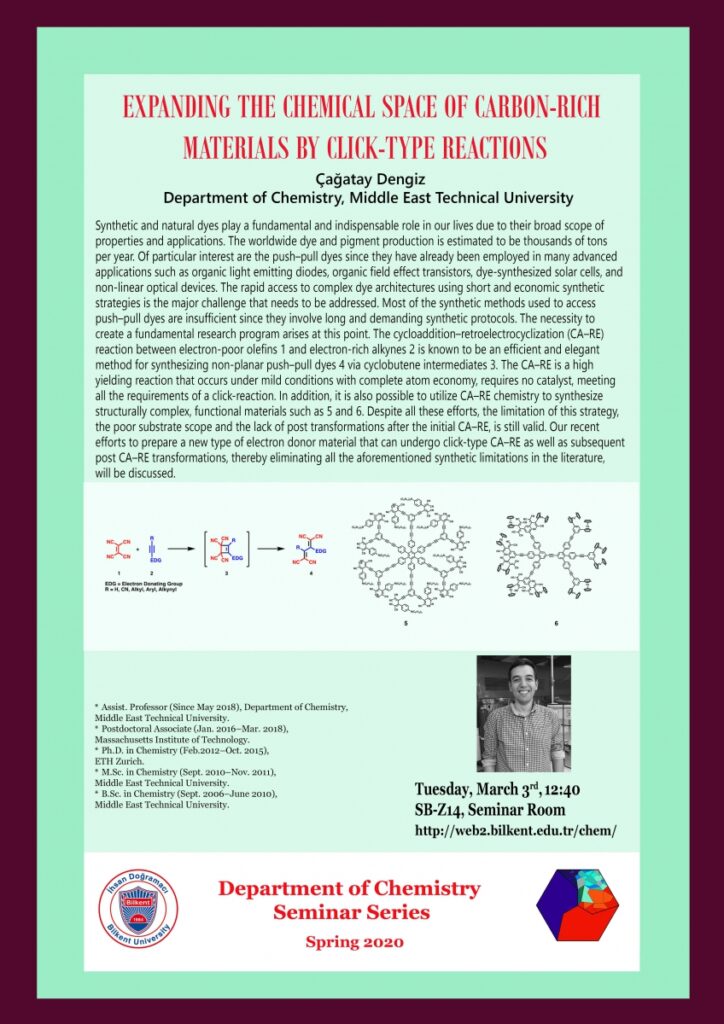Spring '20 Department Seminars with Dr. Çağatay Dengiz
Title: Expanding the Chemical Space of Carbon-Rich Materials by Click-Type Reactions
Speaker: Dr. Çağatay Dengiz
Department of Chemistry, Middle East Technical University
Ankara, Türkiye
Date: March 3, 2020, Tuesday
Time: 12:40
Place: Departmental Seminar Room (SB-Z14)

Abstract:
Synthetic and natural dyes play a fundamental and indispensable role in our lives due to their broad scope of properties and applications. The worldwide dye and pigment production is estimated to be thousands of tons per year. Of particular interest are the push-pull dyes since they have already been employed in many advanced applications such as organic light emitting diodes, organic field effect transistors, dye-synthesized solar cells, and non-linear optical devices. The rapid access to complex dye architectures using short and economic synthetic strategies is the major challenge that needs to be addressed. Most of the synthetic methods used to access push-pull dyes are insufficient since they involve long and demanding synthetic protocols. The necessity to create a fundamental research program arises at this point. The cycloaddition-retroelectrocyclization (CA-RE) reaction between electron-poor olefins 1 and electron-rich alkynes 2 is known to be an efficient and elegant method for synthesizing non-planar push-pull dyes 4 via cyclobutene intermediates 3. The CA-RE is a high yielding reaction that occurs under mild conditions with complete atom economy, requires no catalyst, meeting all the requirements of a click-reaction. In addition, it is also possible to utilize CA-RE chemistry to synthesize structurally complex, functional materials such as 5 and 6. Despite all these efforts, the limitation of this strategy, the poor substrate scope and the lack of post transformations after the initial CA-RE, is still valid. Our recent efforts to prepare a new type of electron donor material that can undergo click-type CA-RE as well as subsequent post CA-RE transformations, thereby eliminating all the aforementioned synthetic limitations in the literature, will be discussed.
Short Biography of the Speaker:
Çağatay Dengiz obtained his B.Sc. and M.Sc. degrees from Chemistry Department at Middle East Technical University. He got his Ph.D. degree from ETH Zürich in 2015 and attended MIT between 2016 and 2018 as a postdoctoral researcher. Afterwards, he was assigned as an assistant professorship at Middle East Technical University at May 2018.